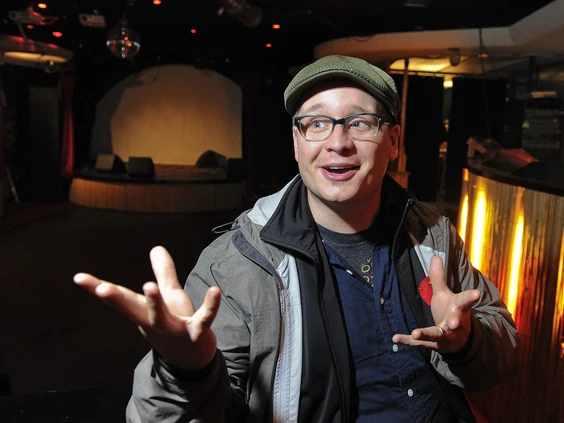B.C. Premier David Eby recently faced questions about his government contract with comedian Charles Demers, who is part of his speechwriting team. The revelation has sparked debate after it was reported that Demers is paid $165 an hour under an agreement valued at up to $150,000. Eby, however, emphasized that the actual payout to date is far lower, totaling $14,000 for this year, with prior payments over three years amounting to $95,262.
The contract covers the period from February 6, 2025, to January 31, 2027, with options for two additional one-year extensions. Demers, a Vancouver-based comedian, Juno Award nominee, and BC Book Prize finalist, is known for his appearances on CBC Radio’s The Debaters and co-starring roles in the Netflix series Beat Bugs and The Last Kids on Earth. He also participated in Eby’s 2022 swearing-in ceremony, illustrating a long-standing connection with the Premier.
The discussion arose after Eby delivered a humorous back-to-school line at a recent news conference, joking about “gradual entry for politicians” in a nod to his own children starting the fall term. Observers wondered whether the line was written by Demers or came from Eby himself. Other moments, such as his quip about the delayed Pattullo Bridge with Transportation Minister Mike Farnworth, also raised questions about how much of the Premier’s humor comes from his speechwriting team.
Eby defended the arrangement, explaining that Demers is one of several speechwriters he relies on for the demanding schedule of public engagements. “Today, for example, I’m delivering five speeches. I would love to be able to write my own speeches the way that I used to. But I do need support to be able to respond to each event that I go to. Speechwriters are a necessary part of the job,” he said.
The B.C. Conservatives criticized the contract, suggesting it could reach $450,000 if extended, and linking it to the province’s rising fiscal pressures. Finance critic Peter Milobar framed the spending as an example of misaligned priorities, citing the province’s projected $11.6 billion deficit and high debt servicing costs. Milobar argued that funding a comedian’s contract appears tone-deaf in the context of hospital construction delays and youth unemployment.
Despite the criticism, Eby stressed the cost efficiency of using contracted speechwriters, noting that professional support for speeches can ultimately save resources compared with overburdening government staff. “In this case, $14,000 for a speechwriter is not quite as sensational as the headline that the Conservatives are using,” he said.
The contract with Demers also reflects a broader practice within the Eby government of hiring specialized contractors to support communications. The Premier highlighted that the arrangement allows for timely preparation of speeches and tailored messaging for multiple public events, ensuring that his office can respond effectively to public and media engagements.
Union leaders, while critical of high-priced government hires in general, have avoided targeting Demers personally. Paul Finch, president of the B.C. General Employees Union, stated that the union’s strike concerns focus on fair wages for civil servants rather than singling out individual contractors. Finch described Demers as “not just a comedian, but an accomplished writer and public intellectual,” acknowledging the value of his contributions.
Demers’ role in political speechwriting predates Eby, having written for former premiers and ministers including John Horgan and Adrian Dix. His experience in crafting humor and public messaging underscores the blend of entertainment and communication skills that the Premier’s office finds useful for connecting with audiences.
As the story continues to attract attention, Eby’s use of a comedian in his speechwriting team highlights the evolving strategies in political communication. While critics question the optics of paying a comedian during a period of fiscal constraints, supporters argue that professional and creative support helps ensure effective engagement with the public, balancing humor with policy messaging in a high-pressure political environment.

